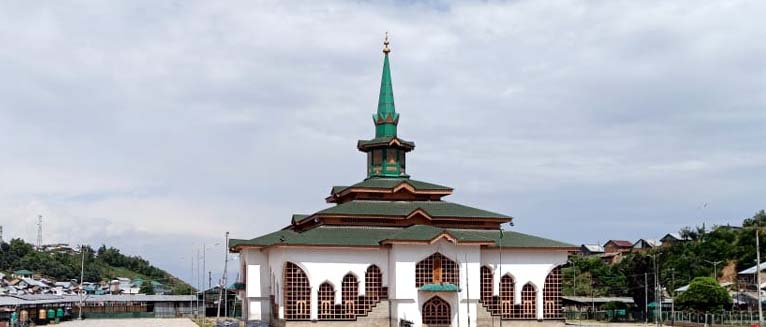Srinagar | WTNS | October 16:The University of Kashmir Thursday organised a day-long seminar on ‘Analytical study of poems of Sheikh-ul-Alam (RA).’
Vice-Chancellor Prof Talat Ahmad presided over the inaugural session of the national-level seminar, organised by the varsity’s Markaz-i-Noor Centre for Sheikh-ul-Alam Studies (CSAS).
“There is a huge scope for propagating and adhering to the rich legacy of Sheikh-ul-Aalam (RA) in the prevailing chaotic global and regional scenario,” Prof Talat, the chief guest, said as per a statement issued to Wilayat Times
He stressed on the need to revisit the iconic role of Sheikh-ul-Aalam (RA) in the cultural transformation of Kashmir at an important juncture of its history.
KU Registrar Dr Nisar Ahmad Mir, the guest of honour, said the legacy of Sheikh-ul-Aalam (RA) also known as “Nund Resh” is indispensable to the Kashmir heritage and culture and “efforts need to be made to incorporate his teachings in the curriculum so that the younger generation remains connected to this glorious spiritual and cultural heritage”.
Prof Shad Ramzan deliberated upon the role of Sheikh-ul-Aalam (RA) vis-à-vis Reshi-Sufi traditions in Kashmir and asserted that “a serious disconnect is observed in the present generation towards spiritual realities”.
Prof Baher Bashir highlighted the role of Sheikh-ul-Aalam (RA) in promoting harmony and brotherhood in Kashmir and urged on understanding Sheikh-ul-Aalam’s poems, and making these accessible to the young generation.
Dr Sameer Siddiqui highlighted promotion and evolution of mystic ideas in the subcontinent and distinctive position of Sheikh-ul-Aalam (RA).
Earlier, CSAS chairman Prof G N Khaki welcomed the dignitaries and participants and underscored the importance of organizing such academic events.
The seminar, held in offline and online modes, was attended by a galaxy of scholars, writers, poets, administrators, educationists and renowned personalities.
The first and second technical sessions were chaired by Prof Majrooh Rashid and Prof Farooq Fayaz, respectively. Fifteen research papers were presented during the technical sessions. 400 participants joined the seminar in online mode.



